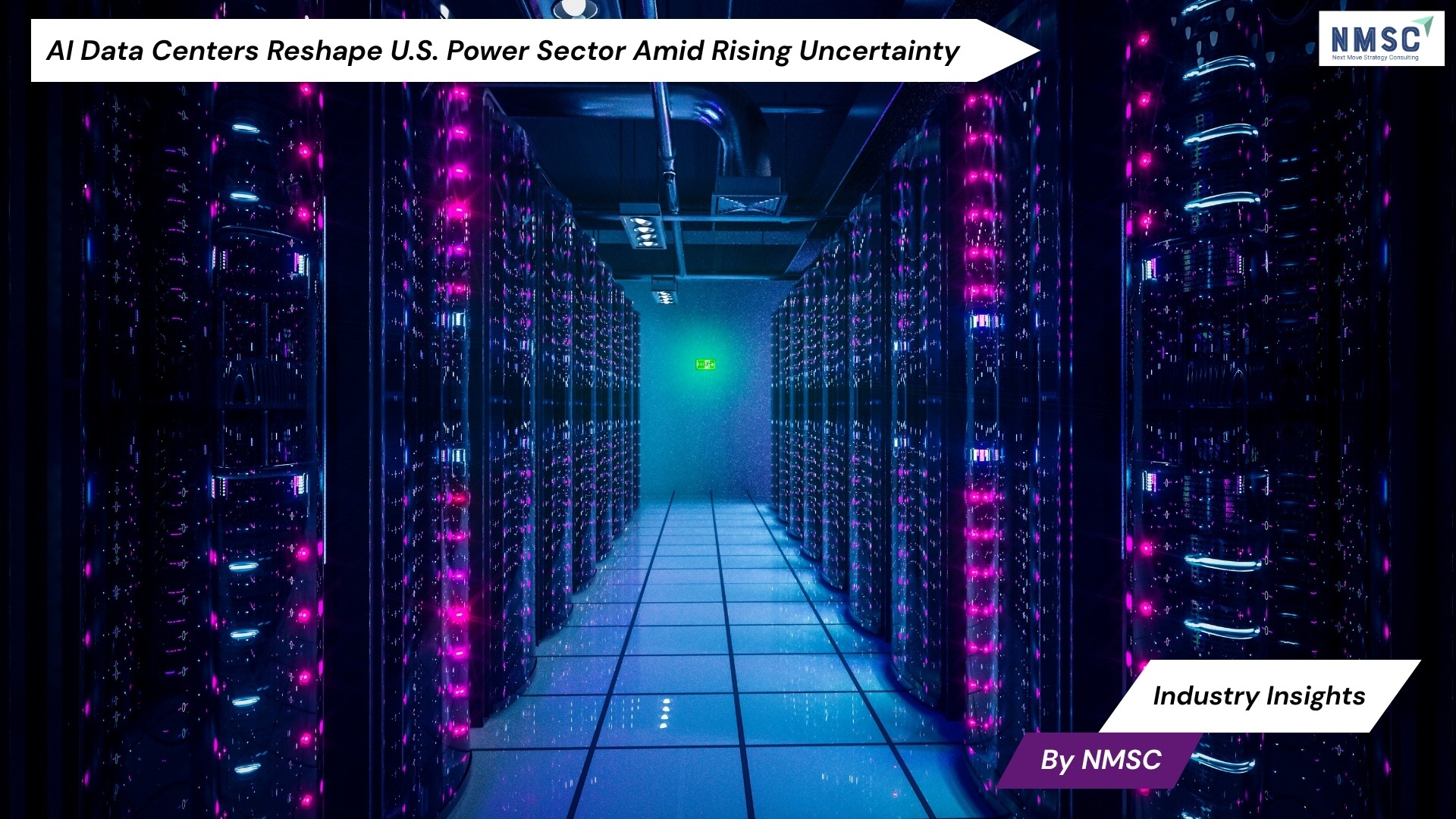China Unveils $226M Underwater Data Centre in Shanghai
Published: 2025-10-29

Industry Insights from Next Move Strategy Consulting
As global AI compute demands strain power grids, China has completed the first phase of the world’s inaugural large-scale Underwater Data Centre (UDC) in Shanghai’s Lin-gang Special Area. The $226 million project leverages ocean cooling to address soaring energy needs of traditional data centres, marking a major advance in sustainable computing infrastructure amid OpenAI’s warning that U.S. energy shortfalls could hand AI leadership to China.
A Revolutionary Cooling Paradigm
Traditional land-based data centres consume up to 50% of total energy on air conditioning to prevent server overheating. The Lin-gang UDC submerges servers beneath the ocean surface, using seawater as a constant natural cooling system. This reduces cooling energy demand to less than 10%. The 24-megawatt facility is powered primarily by offshore wind energy.
“This breakthrough dramatically cuts energy use while harnessing renewable sources,” said Su Yang, General Manager of Shanghai Hicloud Technology. “It sets a new standard for efficient, green data infrastructure worldwide.”
Key Technical Breakthroughs:
-
Passive Seawater Cooling – Uses ocean water as a natural cooling system, reducing energy demand for cooling to less than 10%.
-
24 MW Offshore Wind Integration – Powers the facility primarily with renewable offshore wind energy.
Strategic Context: OpenAI’s Urgent Call
The UDC launch follows OpenAI’s 11-page submission to the White House Office of Science and Technology Policy, highlighting the massive power demands of next-generation AI. The company warned that AI development is straining U.S. electric grids and urged commitment to 100 gigawatts (GW) of new energy capacity annually. China added 429 GW of new power last year—versus just 51 GW in the U.S.—underscoring the strategic urgency behind projects like the UDC.
Impact on the Data Center Cooling Market: Next Move Strategy Consulting’s View
China’s UDC highlights the growing importance of innovative cooling solutions in the data center industry. Traditional land-based data centres use up to 50% of their total energy consumption on air conditioning to prevent server overheating. By contrast, the Lin-gang UDC submerges servers beneath the ocean surface, where seawater acts as a constant, natural cooling system. This approach dramatically reduces the energy demand for cooling to less than 10%. Powered primarily by offshore wind energy, the 24-megawatt project eliminates the need for mechanical cooling systems typically required in onshore facilities. This development supports the shift toward more sustainable and energy-efficient data center operations, demonstrating a practical path to address the soaring energy demands of traditional Data Centre Cooling Market through ocean-based thermal management.
Pioneering the Subsea Computing Era
With AI infrastructure placing unprecedented demands on power systems, the UDC offers a new model for high-efficiency computing. Its use of natural ocean cooling and offshore wind power addresses key challenges in energy consumption and sustainability.
As global data centre energy demands rise, China’s underwater innovation underscores the critical link between energy capacity, cooling efficiency, and leadership in artificial intelligence.
Source: Times of India
Prepared by: Next Move Strategy Consulting
About the Author
 Nitrishna Sonowal is a dynamic SEO Executive and Content Writer with 3+ years in digital marketing. She blends data-driven SEO strategies with creative storytelling to craft content that boosts engagement, drives traffic, and strengthens brand presence. Experienced in keyword research, on-page optimization, and content strategy, she delivers measurable results for clients across industries. Passionate about digital trends, she thrives on turning insights into impactful campaigns. Outside work, she enjoys dancing, baking, and exploring new destinations.
Nitrishna Sonowal is a dynamic SEO Executive and Content Writer with 3+ years in digital marketing. She blends data-driven SEO strategies with creative storytelling to craft content that boosts engagement, drives traffic, and strengthens brand presence. Experienced in keyword research, on-page optimization, and content strategy, she delivers measurable results for clients across industries. Passionate about digital trends, she thrives on turning insights into impactful campaigns. Outside work, she enjoys dancing, baking, and exploring new destinations.
About the Reviewer
 Debashree Dey is a versatile Content Writer, PR Specialist, and Assistant Manager in Digital Marketing, known for her ability to craft audience-focused narratives and develop data-driven strategies that enhance brand visibility. As a published manuscript author, she combines creativity
with strategic acumen to help brands strengthen their presence and drive deeper user engagement. Outside of her professional pursuits, Debashree draws inspiration from creative projects and design explorations.
Debashree Dey is a versatile Content Writer, PR Specialist, and Assistant Manager in Digital Marketing, known for her ability to craft audience-focused narratives and develop data-driven strategies that enhance brand visibility. As a published manuscript author, she combines creativity
with strategic acumen to help brands strengthen their presence and drive deeper user engagement. Outside of her professional pursuits, Debashree draws inspiration from creative projects and design explorations.
















Add Comment